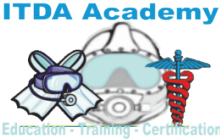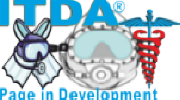 What
is the Difference Between a Diploma and a Degree
as well as a Certificate?
What
is the Difference Between a Diploma and a Degree
as well as a Certificate?
When deciding what kind of post-secondary education you want to pursue, there are many options. Whether you choose a certificate, diploma, or degree program should depend on the kind of job you're looking for and the time you have to commit to the program. In general, certificate and diploma programs take less time to complete than a degree and are more focused on a specific skill, so you can get a job as soon as possible. Degrees often include more general education, in addition to coursework in a specific area of study, and are required for various professional fields. Find out more about these awards in the chart below.
| Award Type | Certificate | Undergraduate or Graduate Certificate | Diploma | Degree |
|---|---|---|---|---|
| Institutions | Vocational and technical schools; community colleges. Industry Bodies. | 2- and 4-year colleges and universities. | Vocational and technical schools; community colleges. Industry Bodies. | 2- and 4-year colleges and universities. |
| Completion Time | Courses vary... | From 1 year | About 6mths to 1 year. | 2-4 years or more. |
| Career Fields | Technical and vocational fields. | Enhance professional skills or specialise in an area. | Technical and vocational fields. Maybe Industry specific. | Professional fields requiring undergraduate or graduate degrees. |
Certificate vs Degree Programs
Overall, certificate and degree programs differ in the amount of time they take to complete, the institutions that offer them, and the fields of study they focus on.
Certificate Programs
Vocational and technical certificates programs are focused on a specific skill and are usually offered at community colleges or technical and vocational schools. These certificate programs generally take about a year to complete, but could take as little as a few months. Certificate programs are available in fields like cosmetology; auto repair; heating, ventilation, air conditioning, and refrigeration technology (HVAC); and more. Other examples include medical receptionist certificates and small engine repair certificates. Associate's degrees may be offered in some certificate areas, but a certificate program allows students to complete their education more quickly to be able to enter the workforce.
Undergraduate and Graduate Certificates
Many colleges and universities offer undergraduate or graduate certificates that can be completed in conjunction with a bachelor's or master's degree program. Undergraduate or graduate certifications allow students to concentrate in a specific area of their degree field and may help show future employers that an applicant has specialized knowledge. Undergraduate and graduate certificates are available in different fields, from business to information technology.
Degree Programs
Degree programs can be completed at various levels: associate's, bachelor's, master's or doctorate. This can take two years for an associate's degree, four years for a bachelor's degree, two additional years for a master's degree, or more than four additional years for a doctorate. These degrees are offered at colleges and universities. Although students receive degrees in certain areas of study, they are usually required to take general education courses in various subjects so they get a well-rounded education. Many professional fields, from engineering to education, require at least a bachelor's degree, but some may require higher degrees.
Diploma vs Degree
A diploma takes about a year or two to complete. Like technical or vocational certificates, diplomas focus on a specific skill or field, without the general education coursework required by a degree. Diploma and certificate programs are often offered in the same fields. Diplomas are usually a little more intensive and detailed than certificate programs and may take longer to complete. Diplomas are also common in the healthcare field, like dental X-ray diploma programs. Other examples of diploma programs include areas like welding, HVAC, electrical power distribution, diesel equipment mechanic, and more.
What is a Technical Diploma?
Note that sometimes when people refer to diplomas, they are using it as a catchall term for a document that shows someone graduated from a school or received a degree, like a high school or college diploma. When people refer to a diploma certificate, that is often what they mean. However, a technical diploma can also me used to describe a diploma.

 Page
is in development and more information is available from
Page
is in development and more information is available from